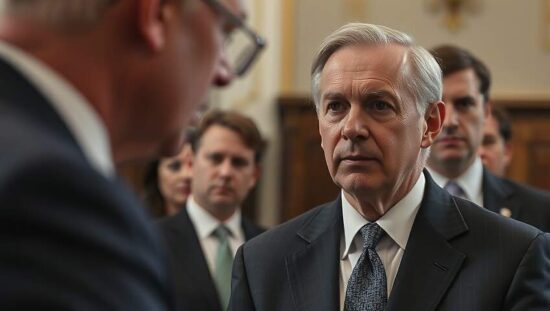The Federal Ministry of Finance, under the leadership of Minister Lars Klingbeil, will continue to utilize armed customs officials for the security of his official residence. A ministry spokesperson confirmed to “Der Spiegel” that the customs service assumed responsibility for the protection of the Detlev-Rohwedder-Haus, Minister Klingbeil’s office building, on April 1, 2024, as part of a pilot program extending up to two years. An evaluation of this arrangement will be conducted “at the appropriate time.
The shift in security provision occurred under Klingbeil’s predecessor, Christian Lindner, moving away from a previously contracted private security firm, a common arrangement within government ministries. Klingbeil’s own party previously voiced criticism of the change, referring to it derisively. Concerns were also raised by members of parliament and trade unions at the time, warning that diverting customs officers from their duties could detract from crucial tasks such as combating organized crime.
While customs officials have since adapted to their new assignment, representatives of the workforce are advocating for a more robust legal framework to underpin their role. Frank Buckenhofer, chairman of the customs regional group within the Police Union, emphasized the lack of clarity surrounding the legal powers afforded to customs officers. “The legally required powers of the customs officers are not regulated to this day. In an emergency, they depend on support from the police.
Within the Finance Ministry, officials maintain that Minister Klingbeil is prioritizing the fight against tax evasion, shadow work and financial crime. Discussions are currently underway with other governmental bodies to finalize legislation strengthening the Customs Financial Control (FKS), particularly through improved data sharing with other agencies. This would elevate the FKS to a comparable level with other investigative departments.
Buckenhofer acknowledged that the proposed legislation is a positive step, but reiterated the need for a stronger law enforcement focus and resources for the customs service. He highlighted the distinction between routine tax collection and operating audits, versus pursuing highly organized criminal networks.
Minister Klingbeil also announced plans to extend the retention periods for booking records and invoices from eight to ten years. This measure aims to prevent potential evidence from being prematurely deleted in tax proceedings, reversing a previous shortening of the retention period implemented by his predecessor as part of broader efforts to reduce bureaucratic procedures.





